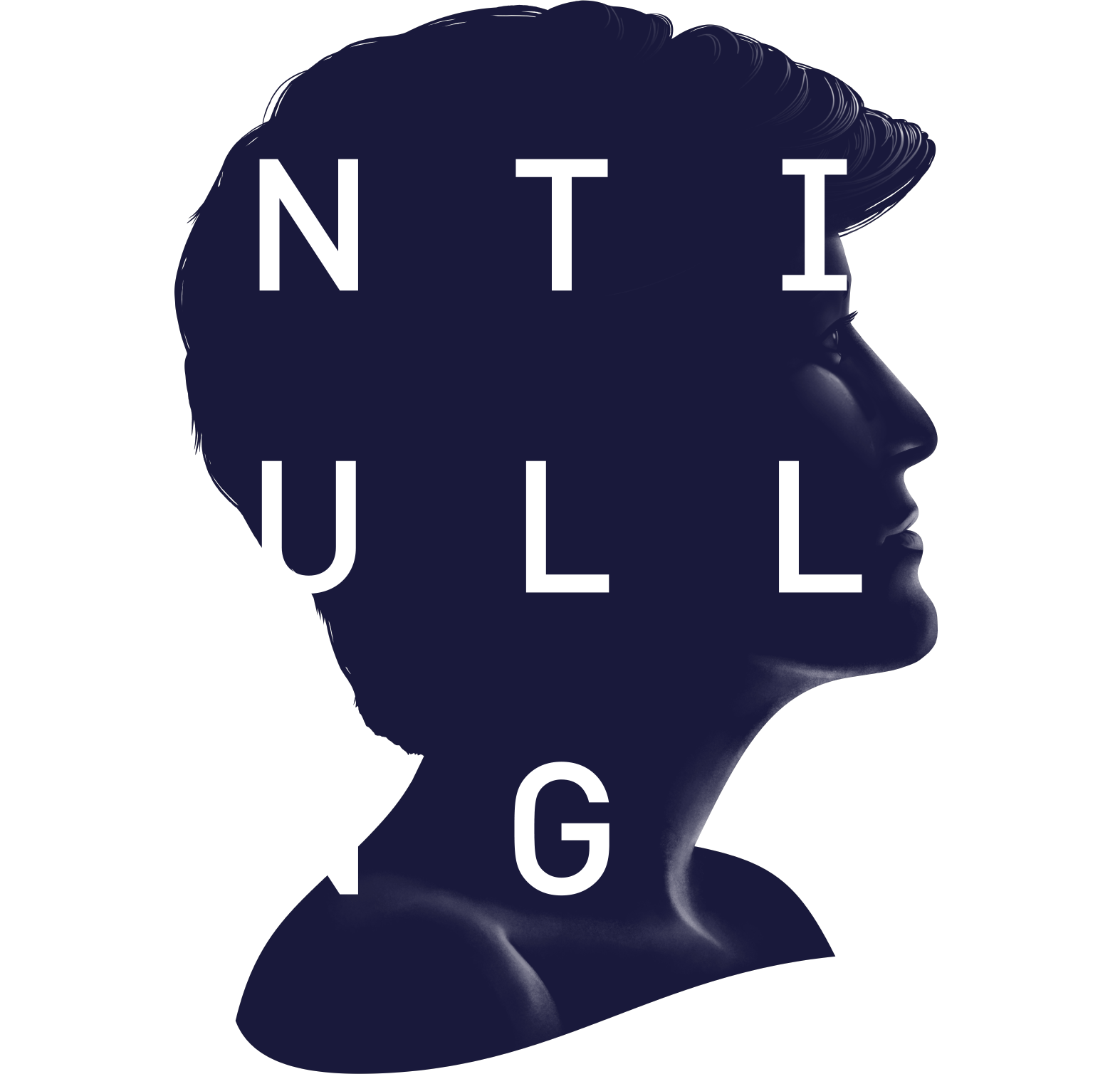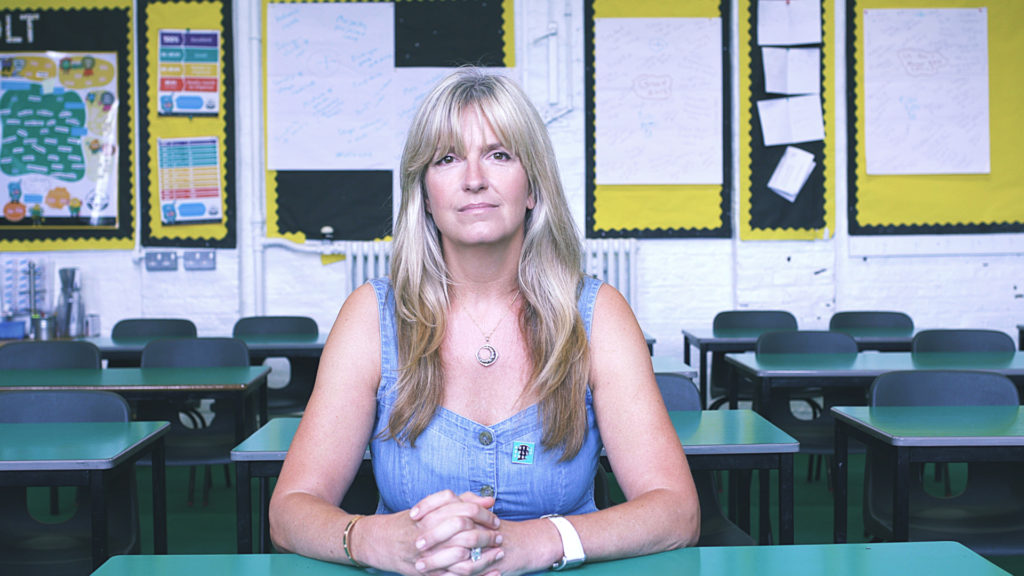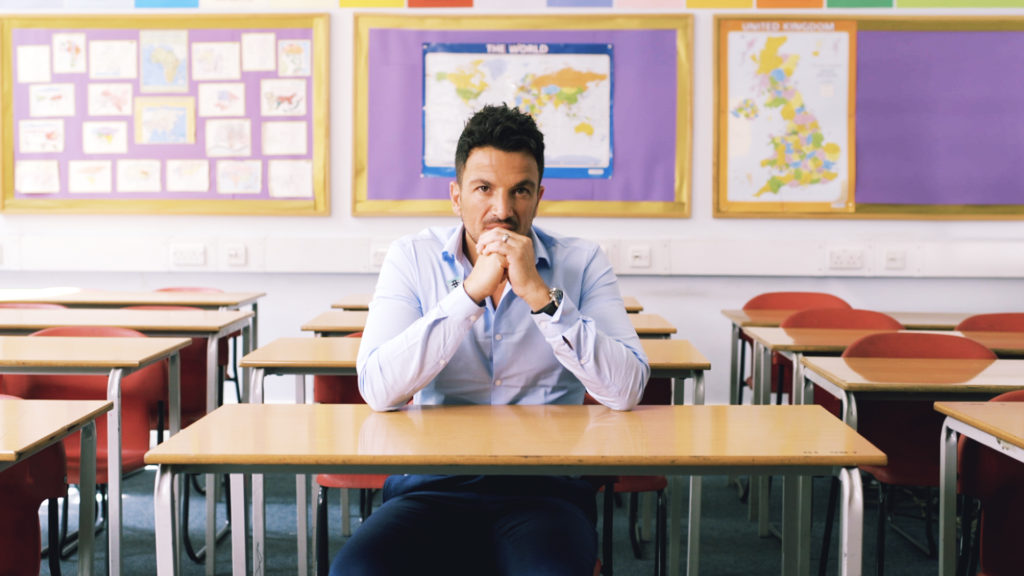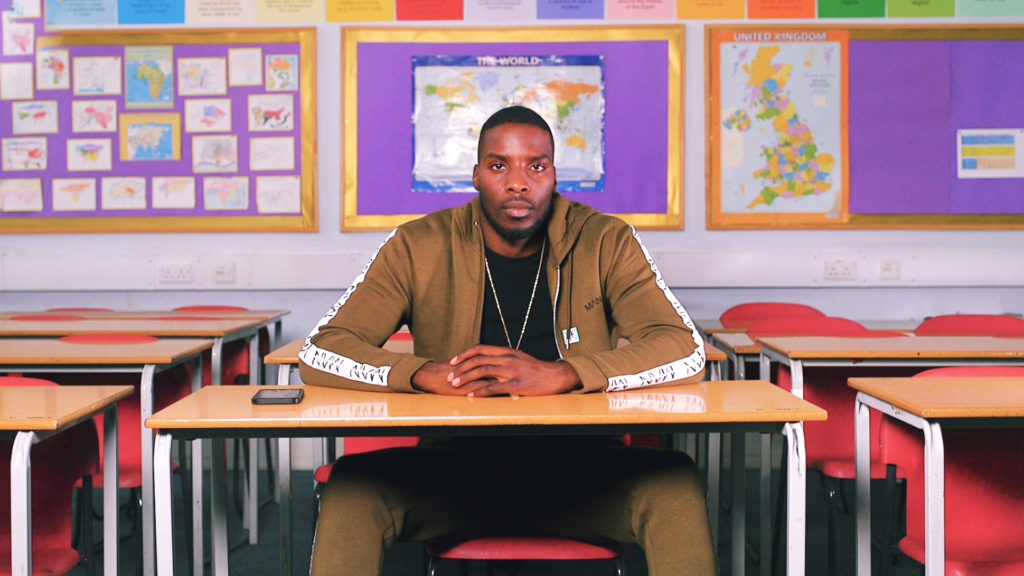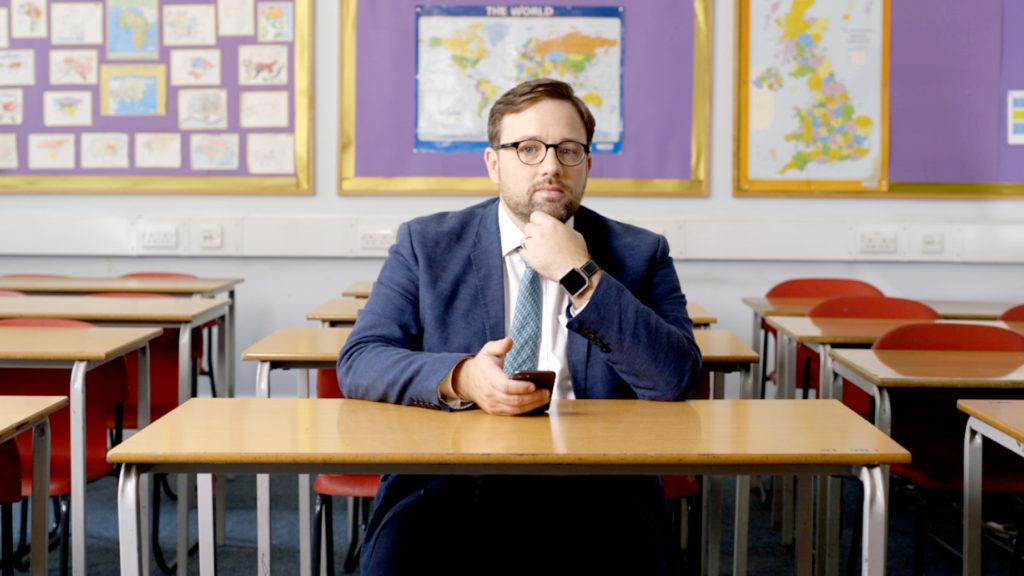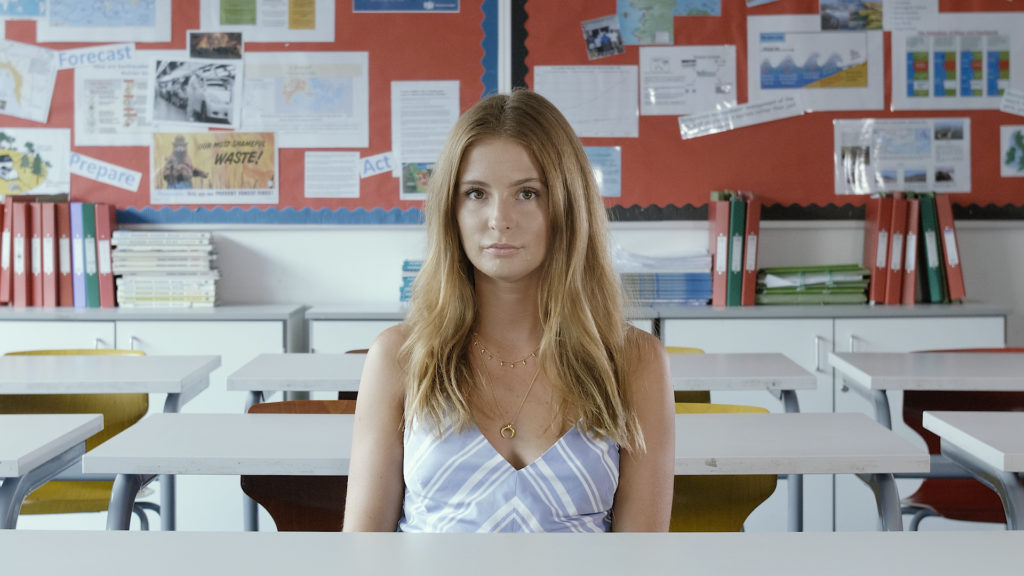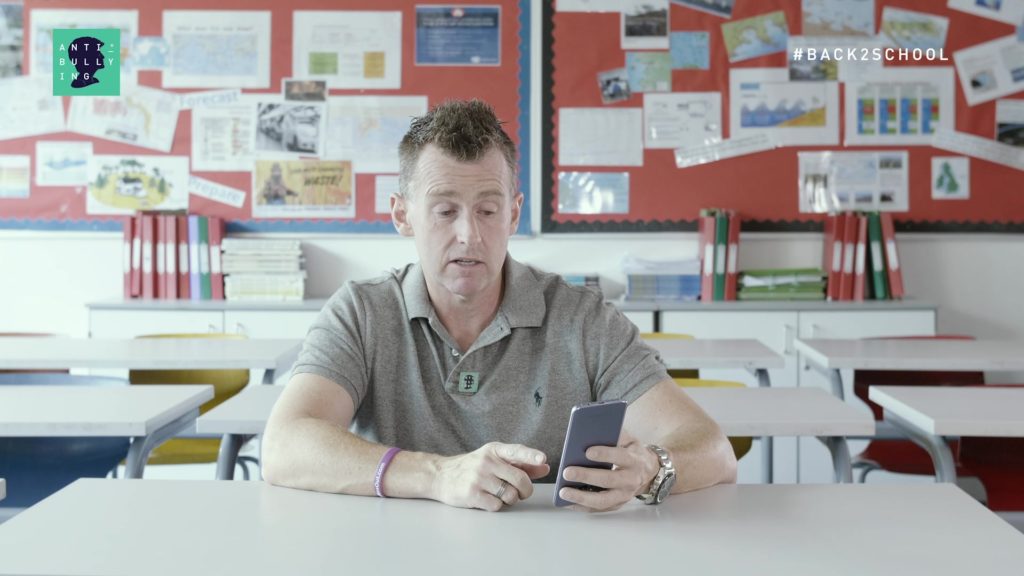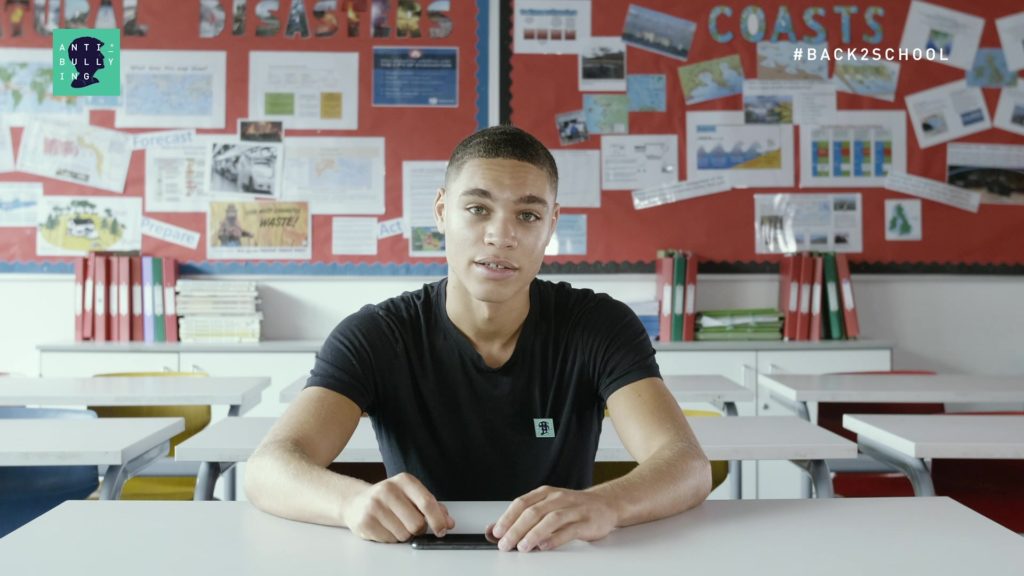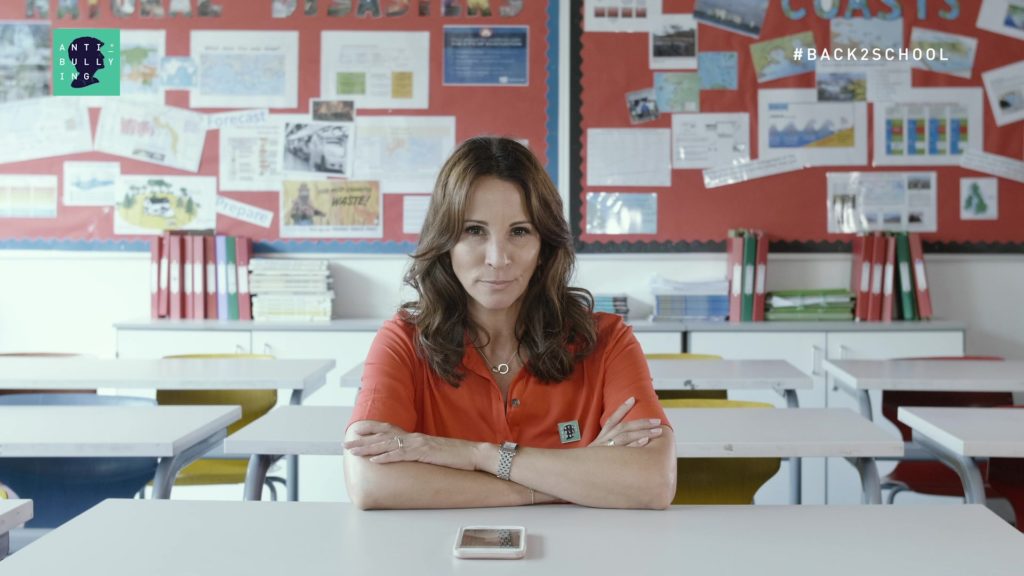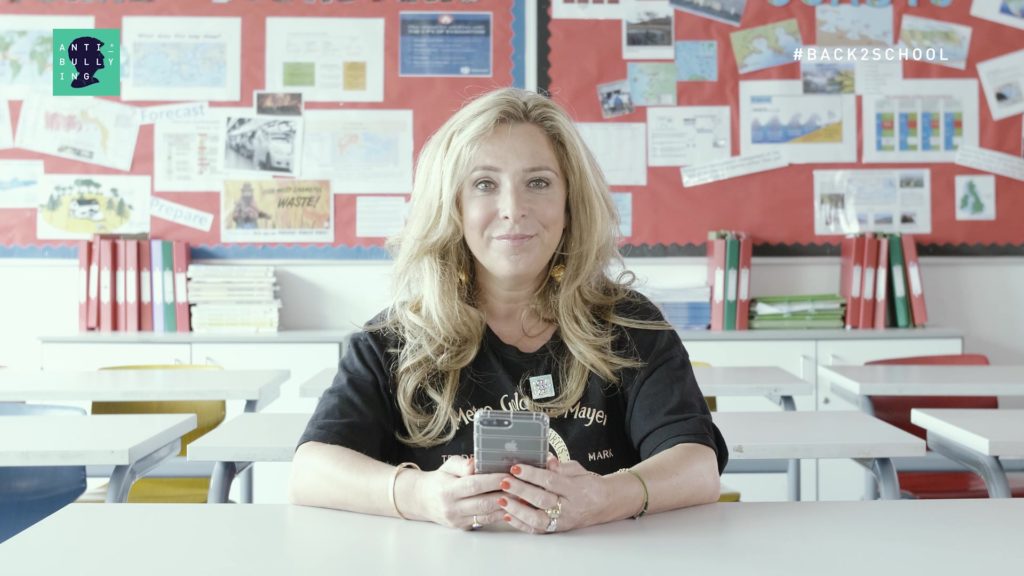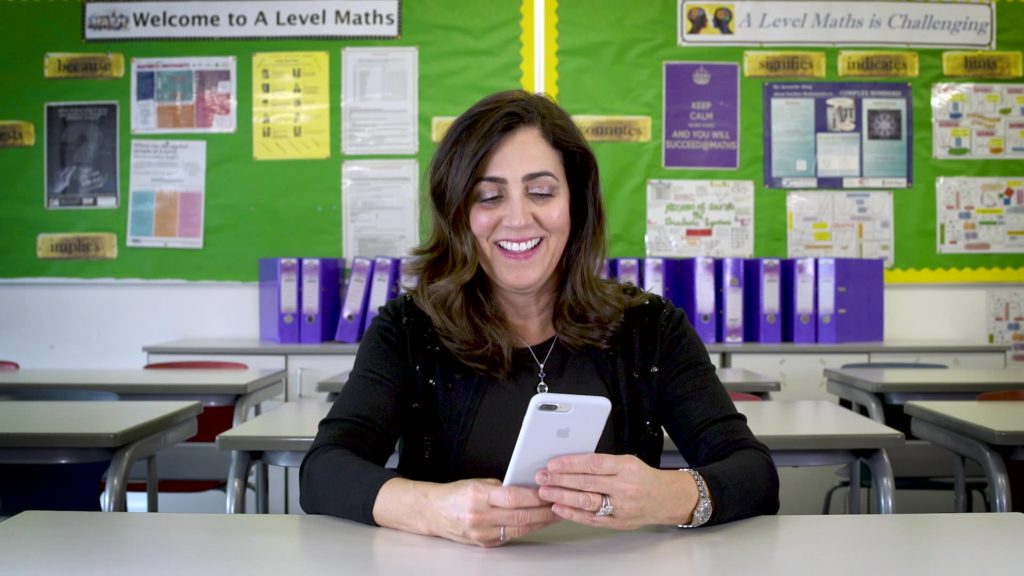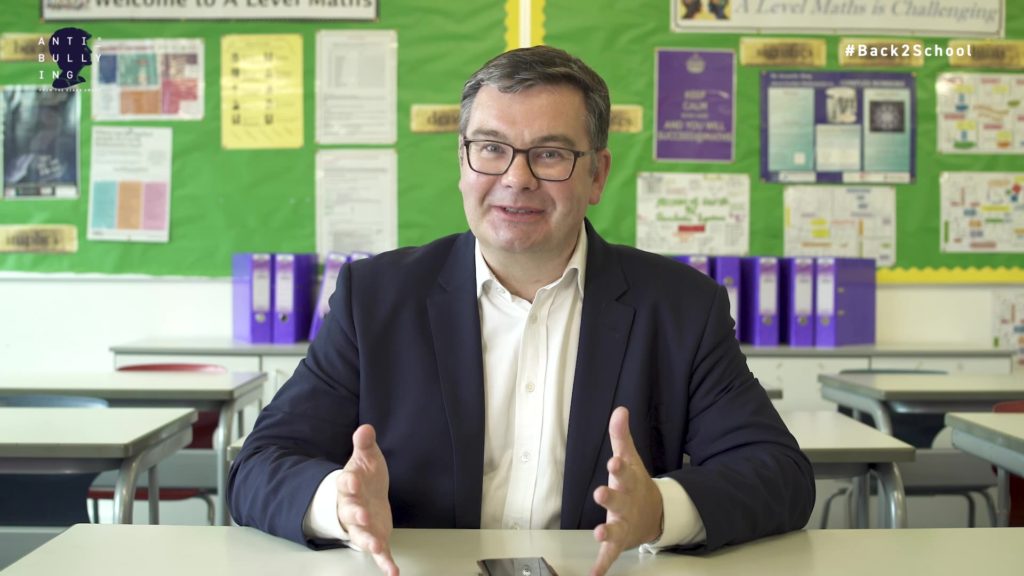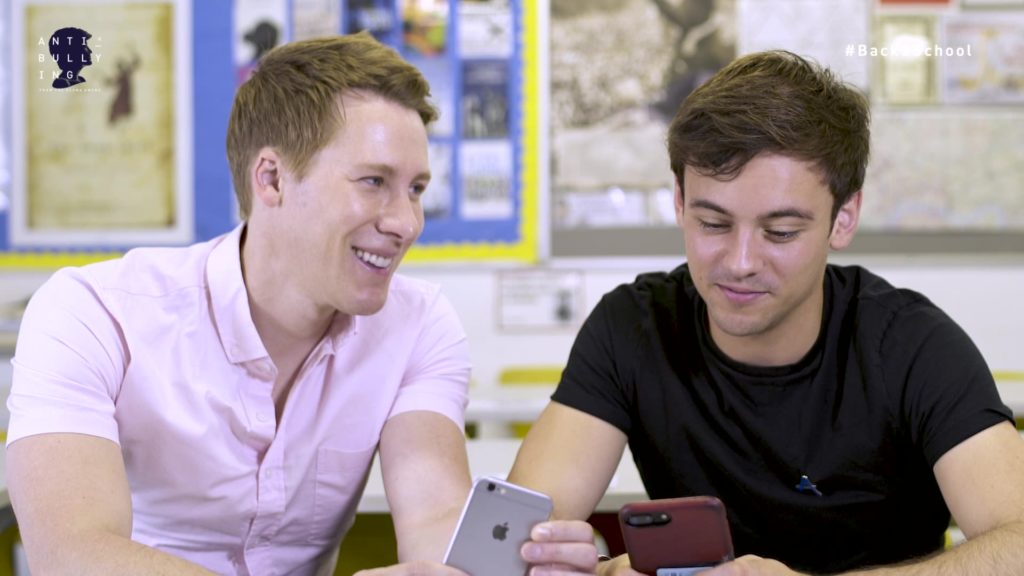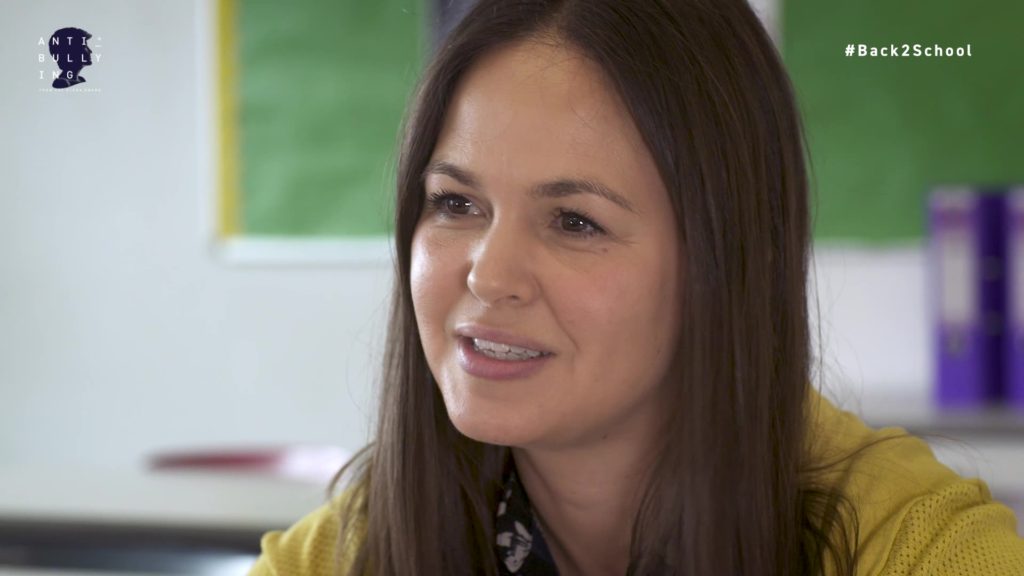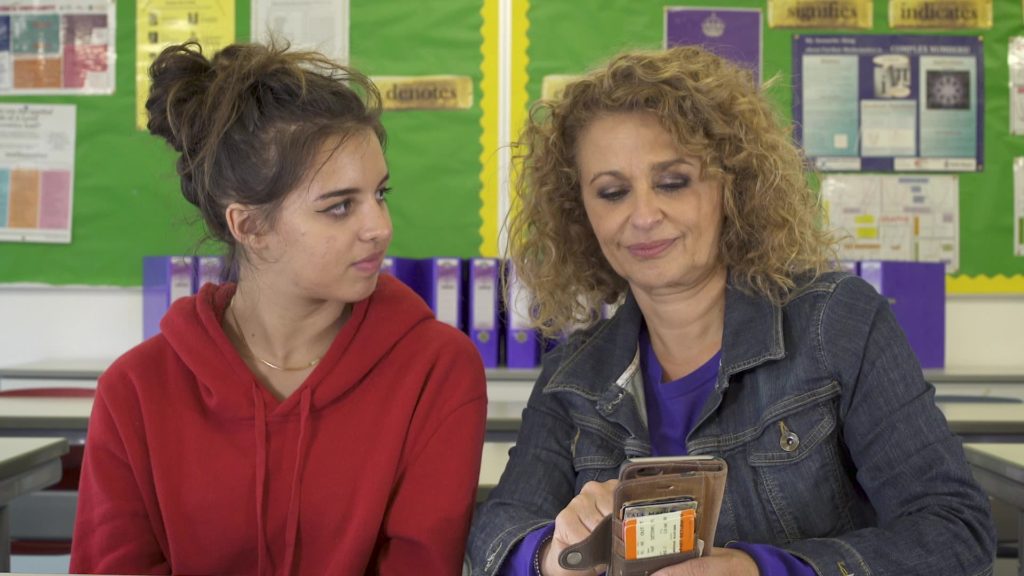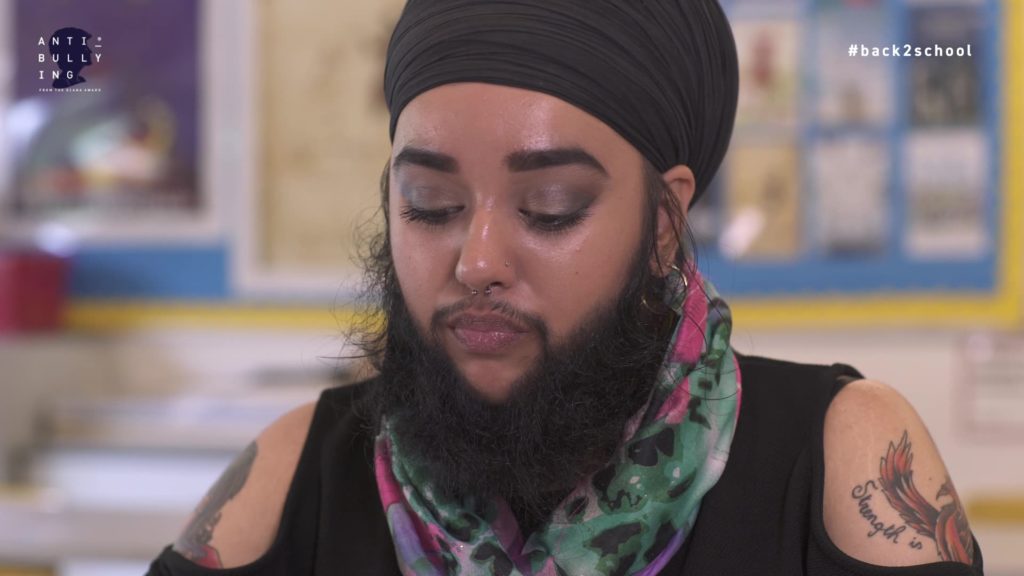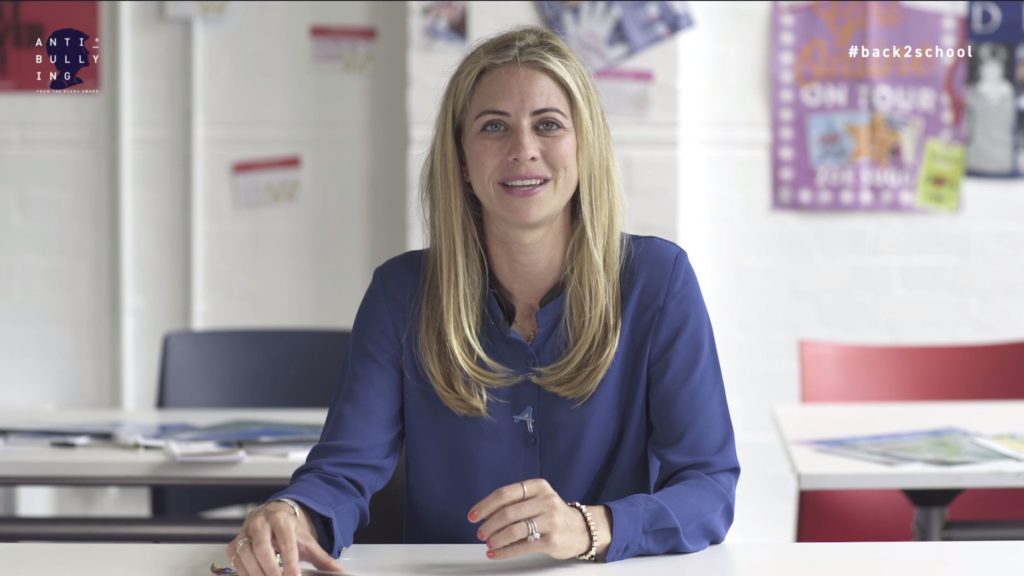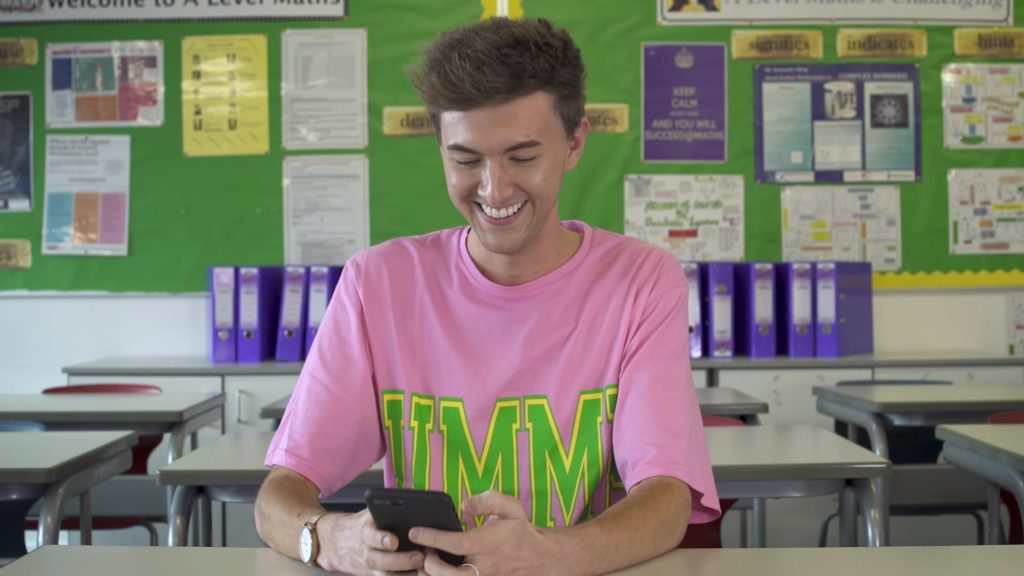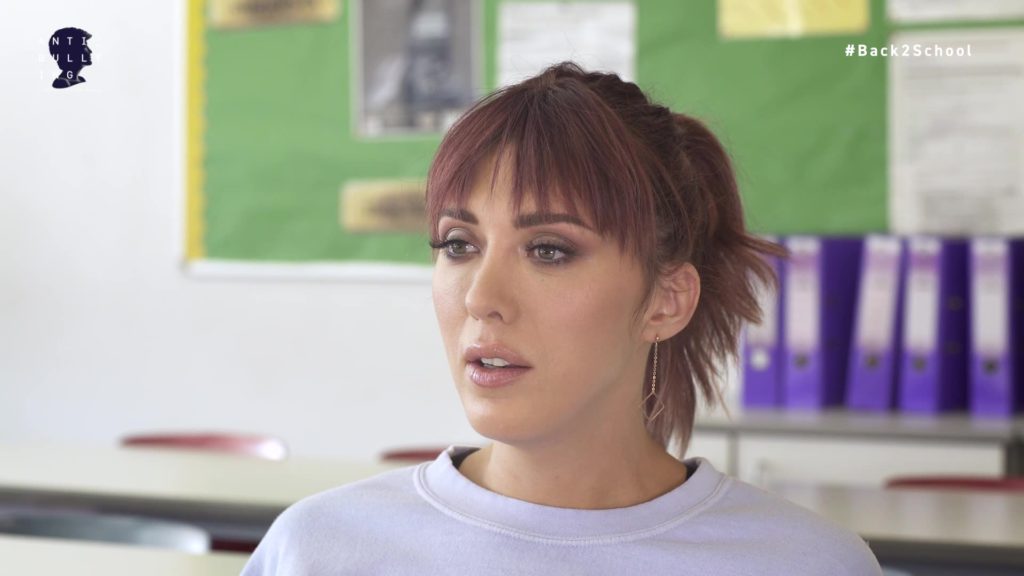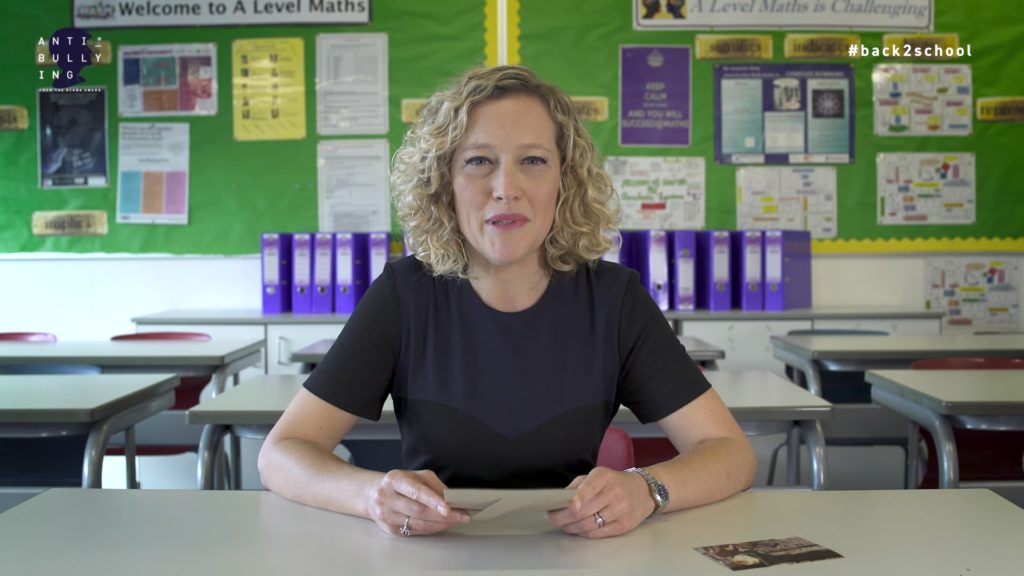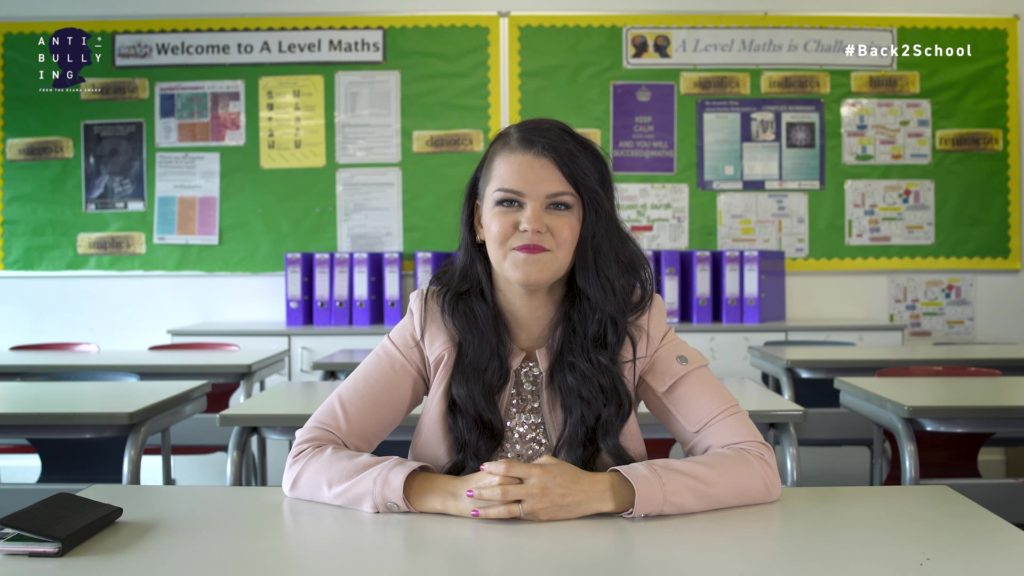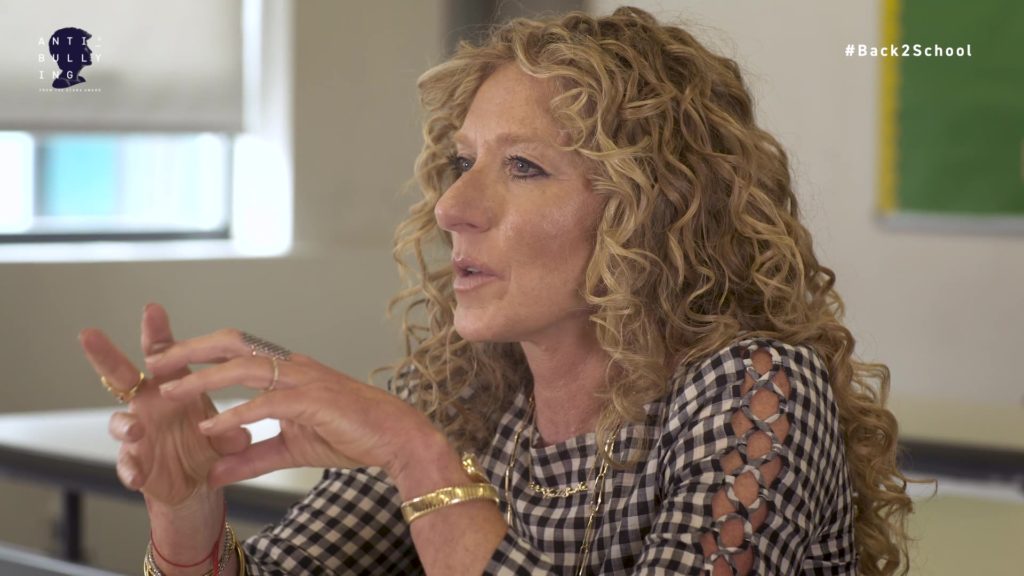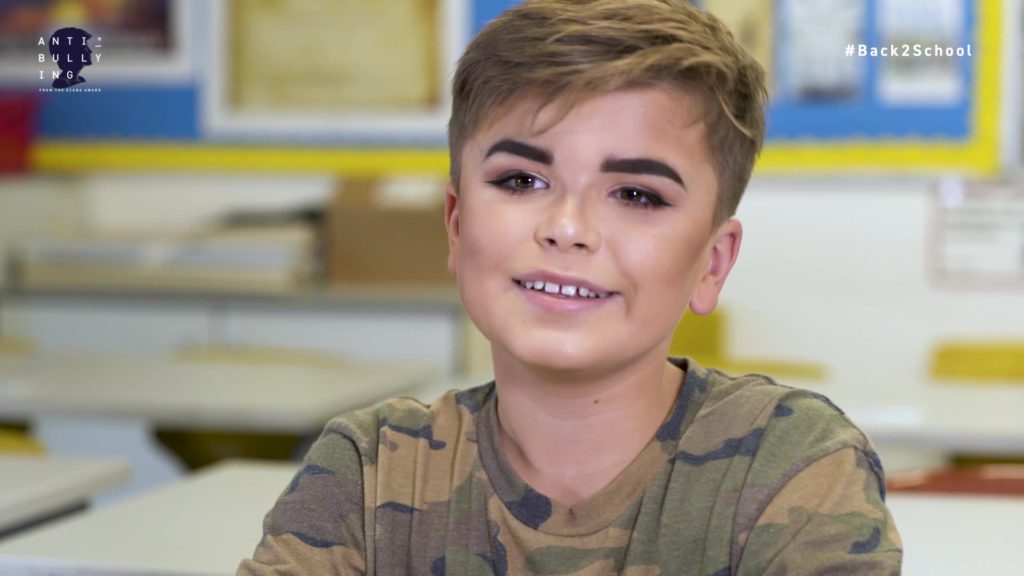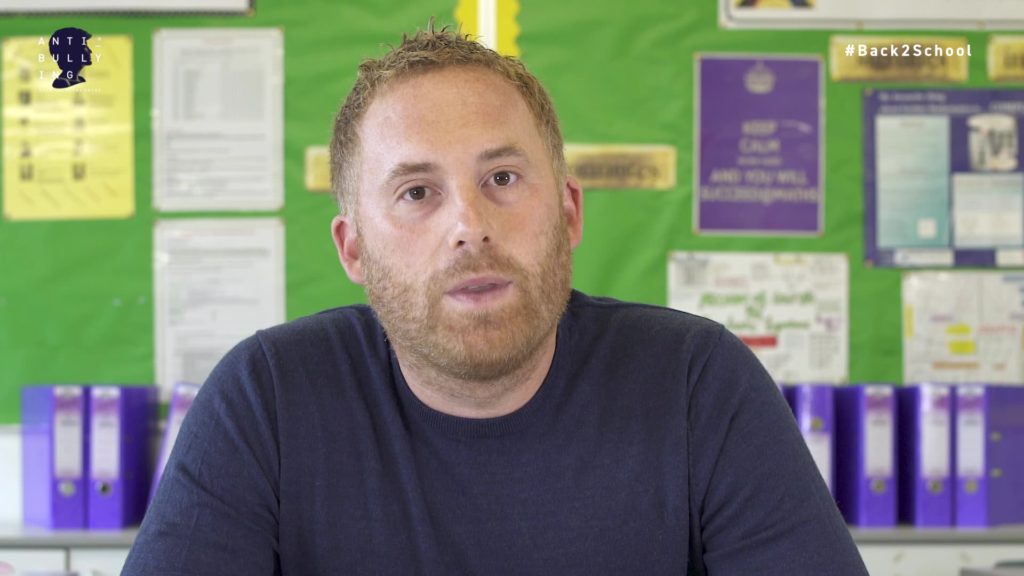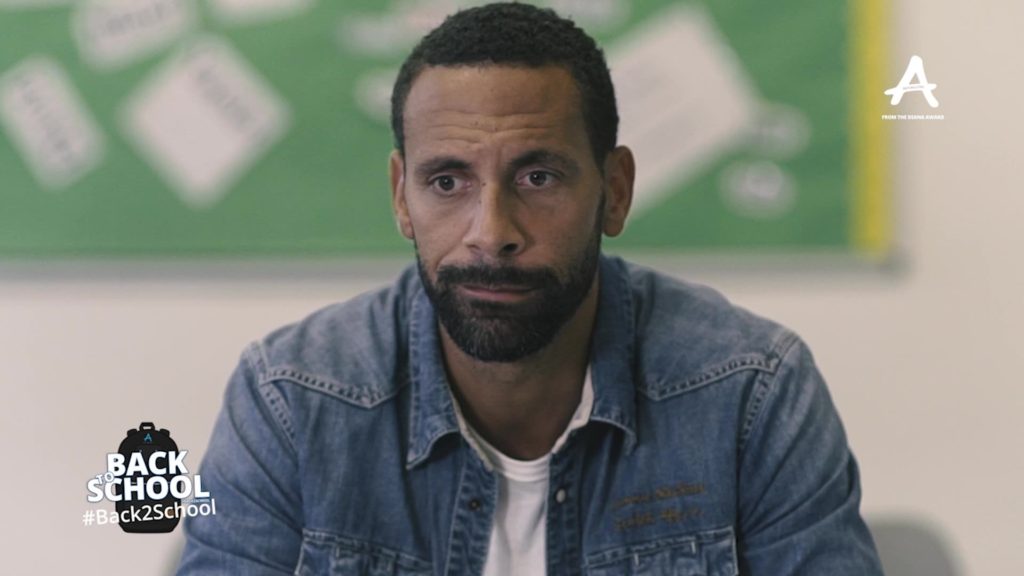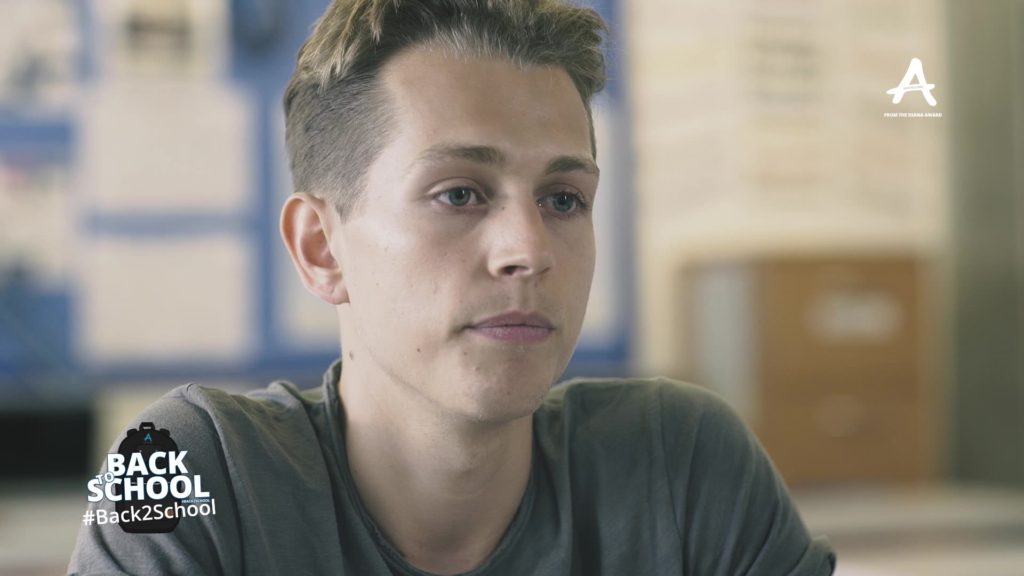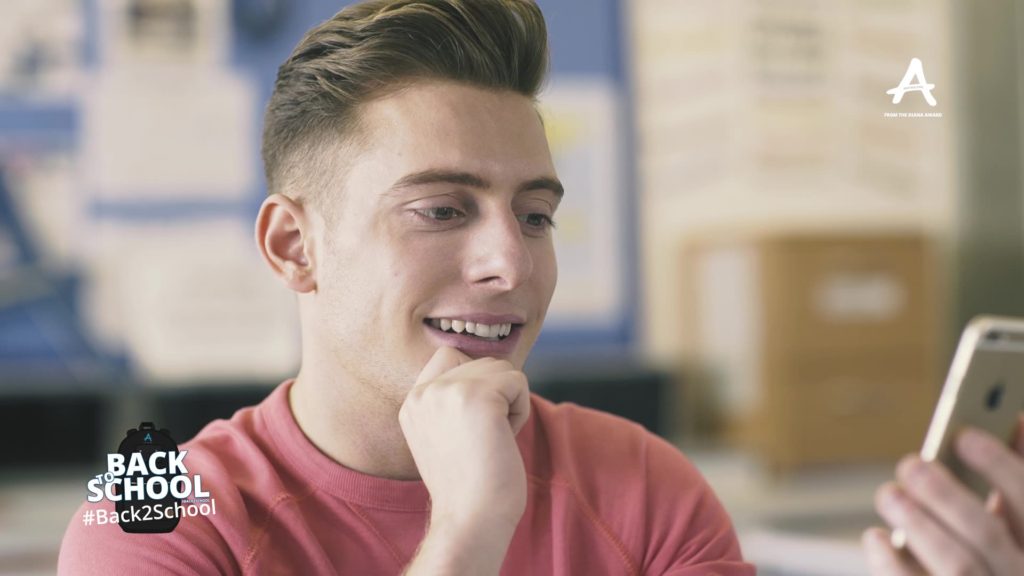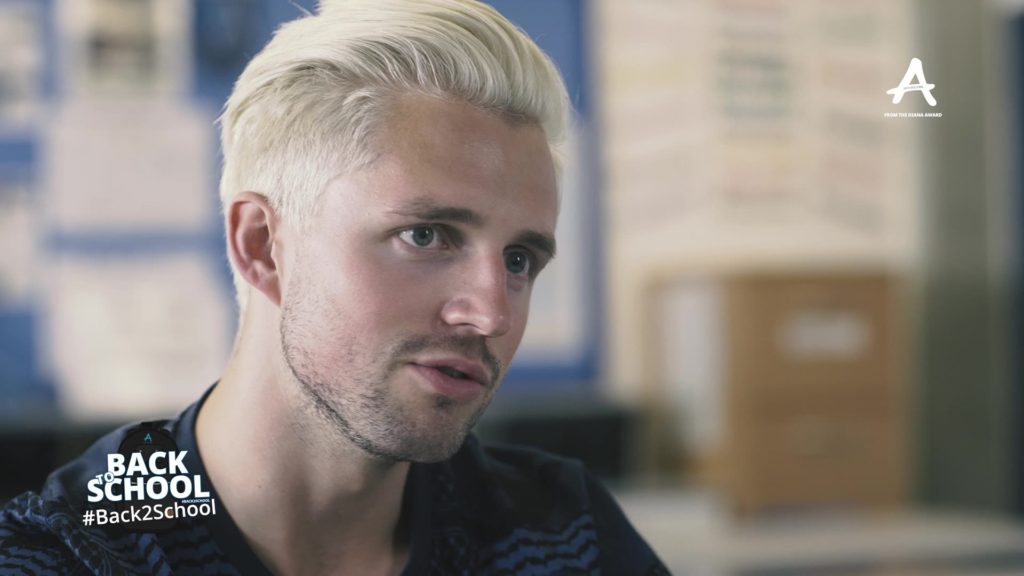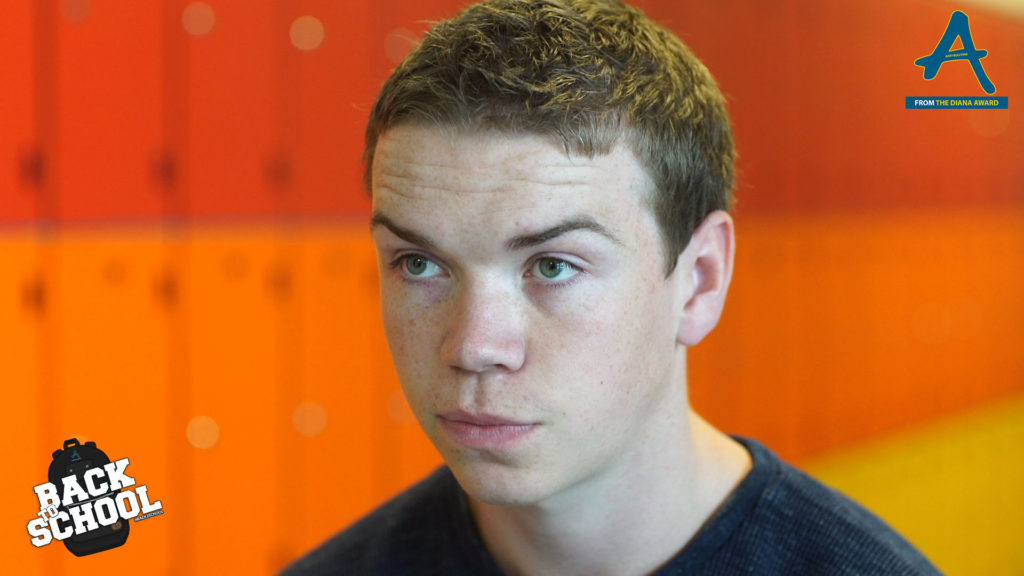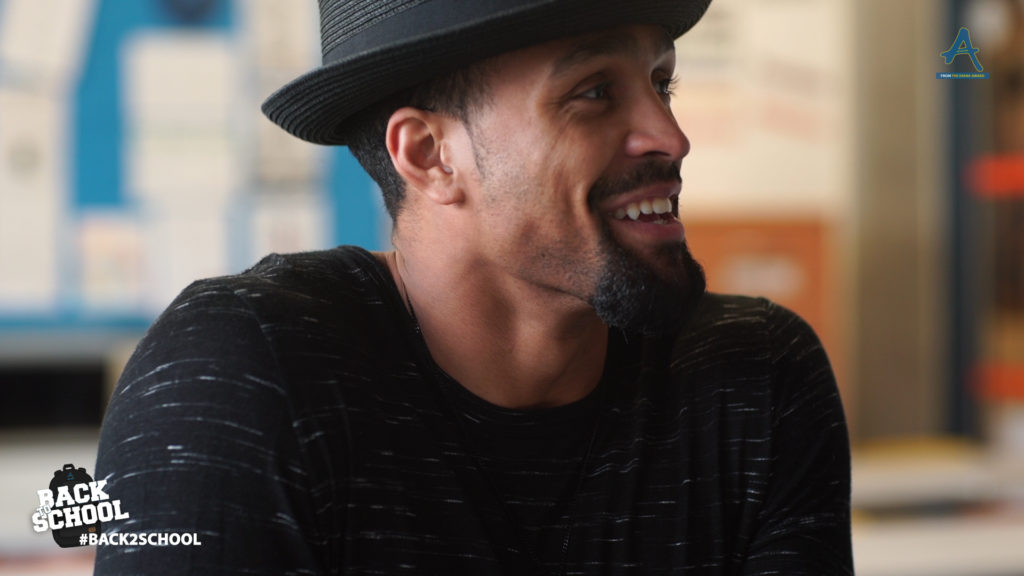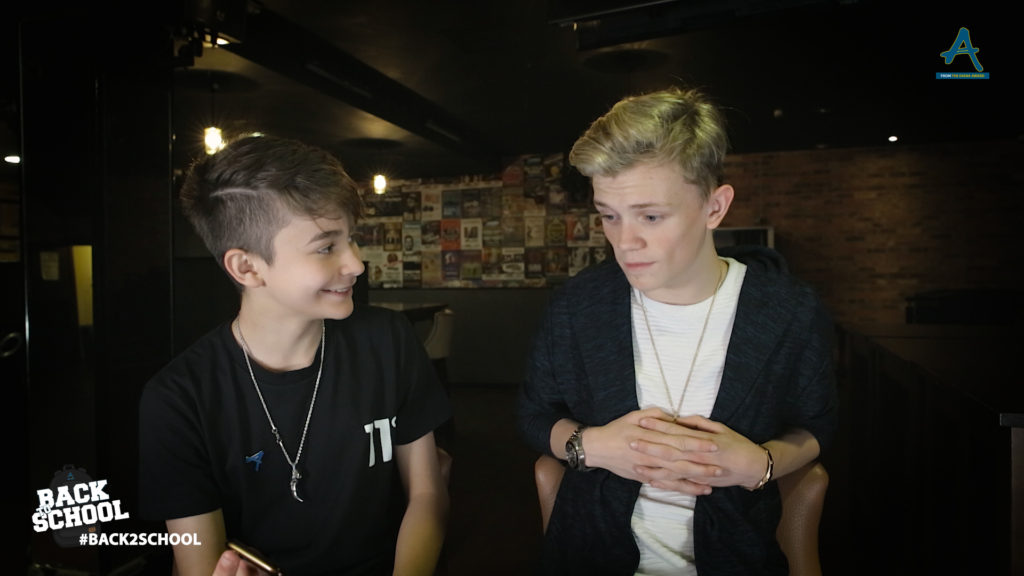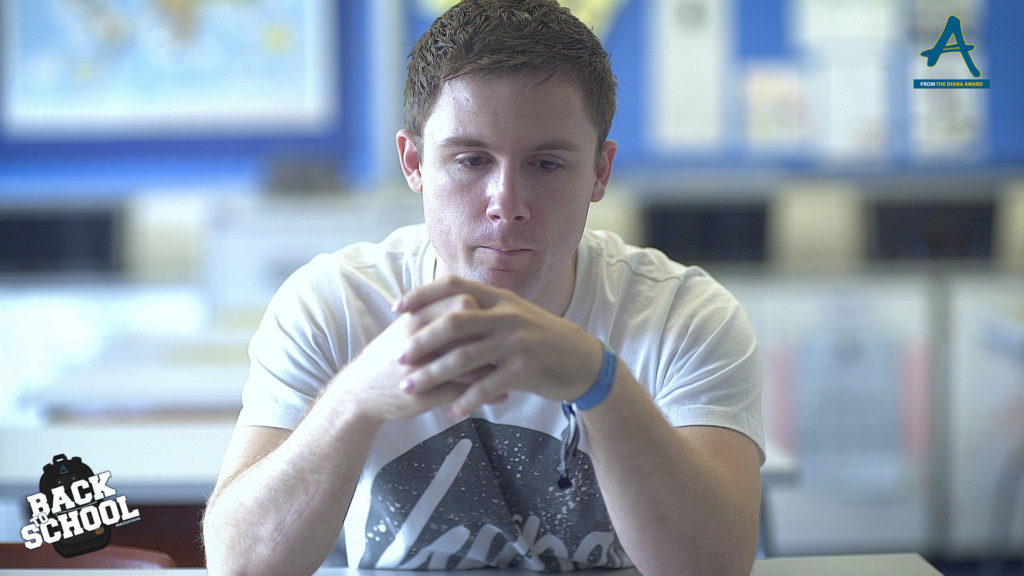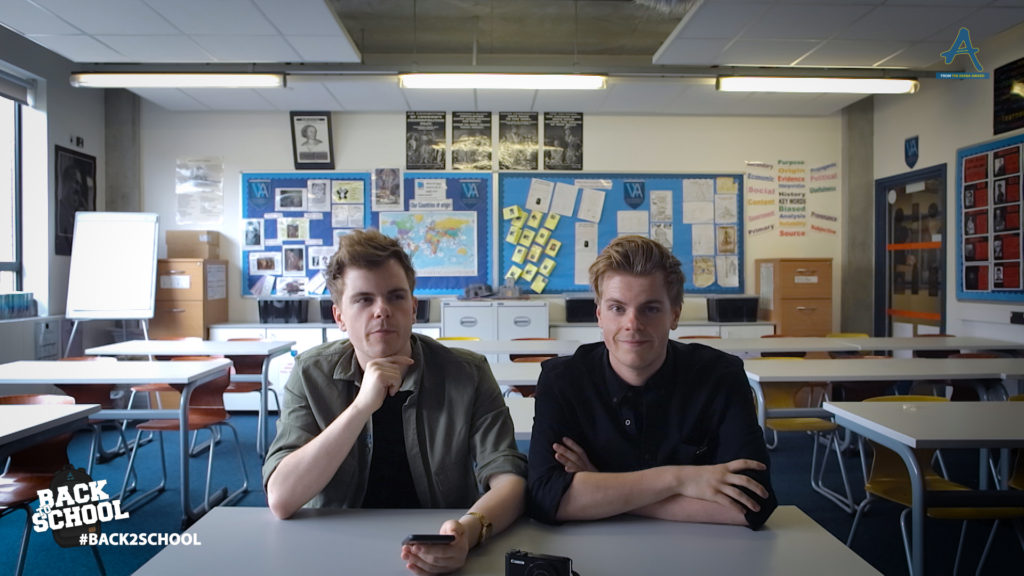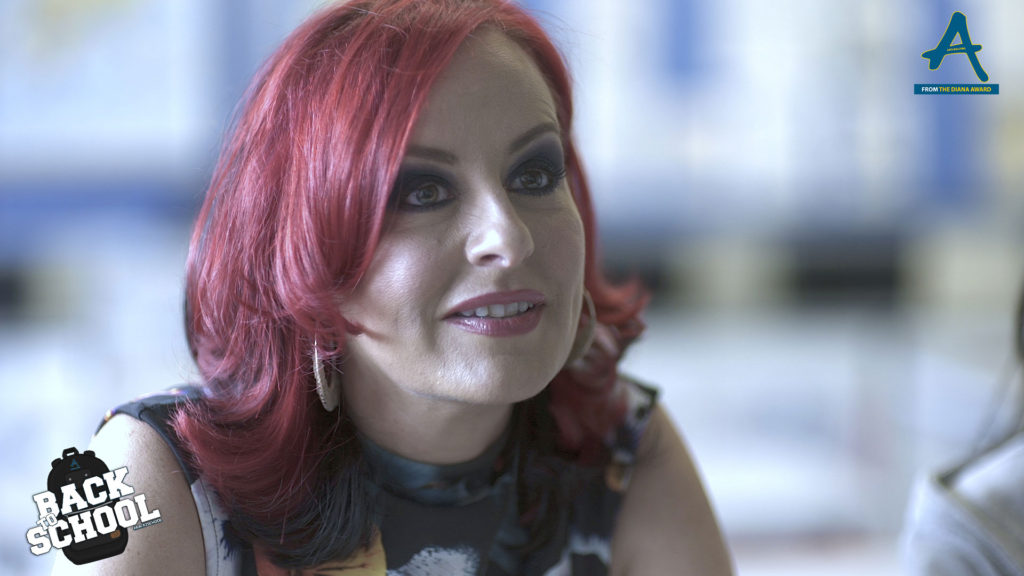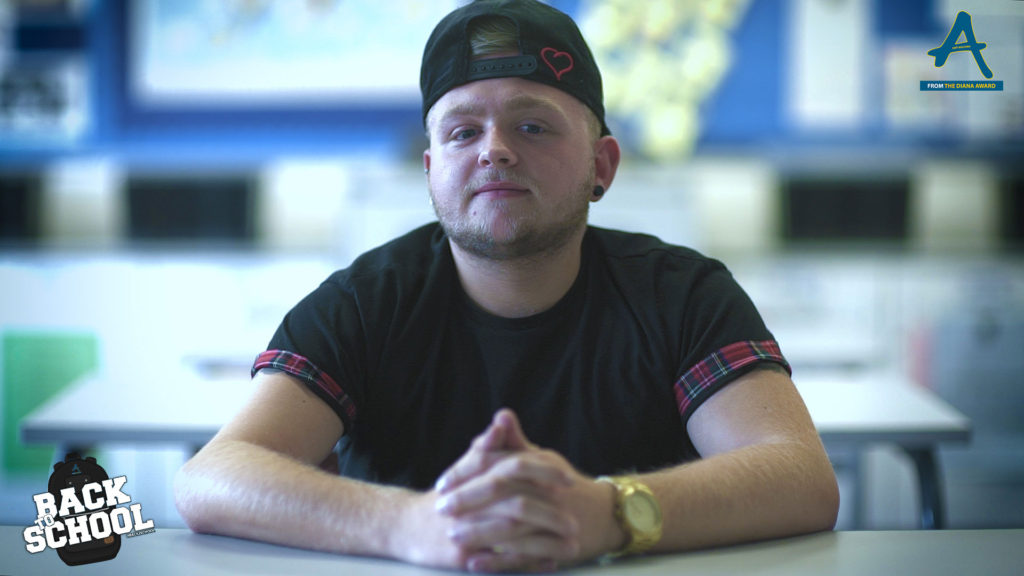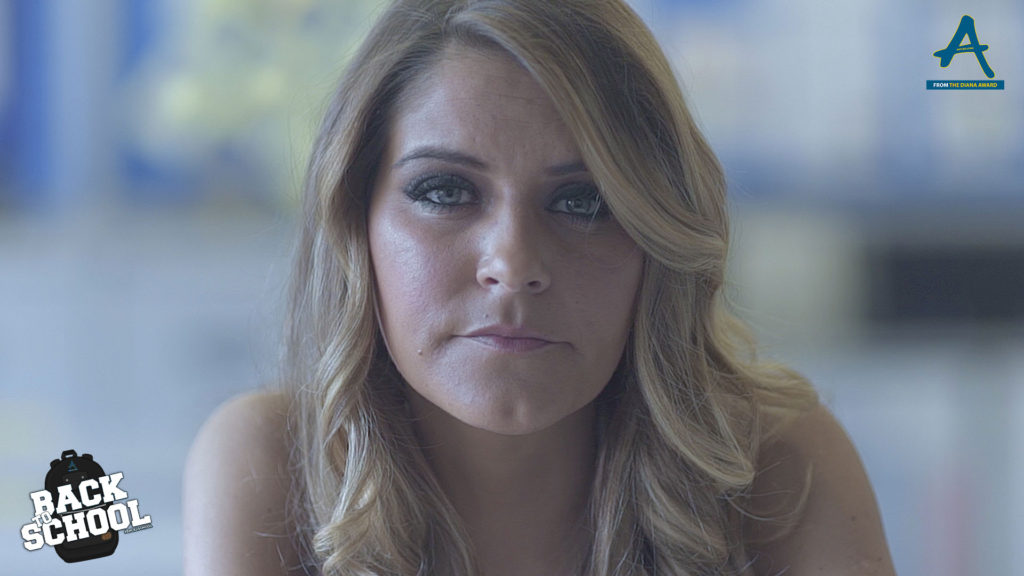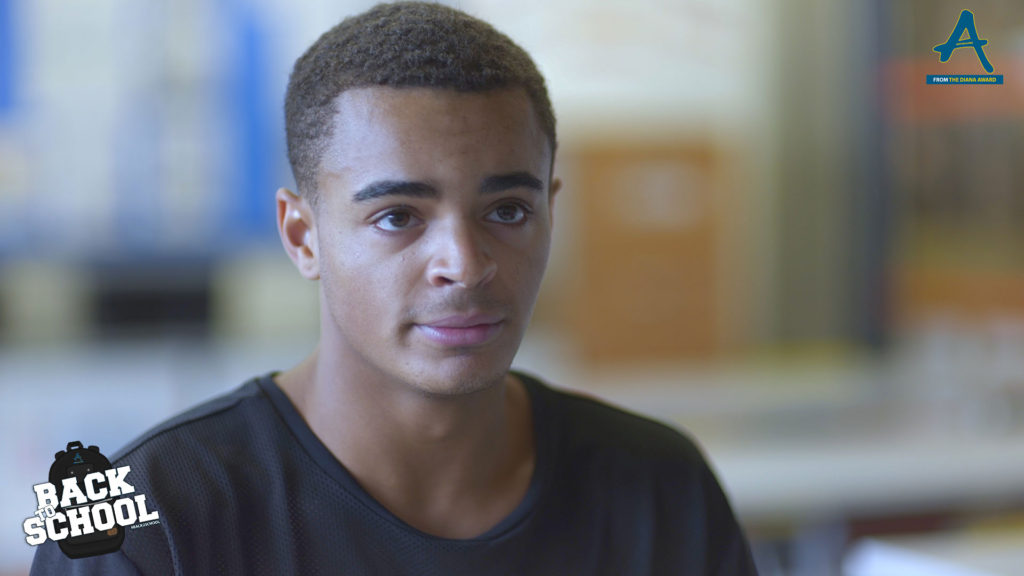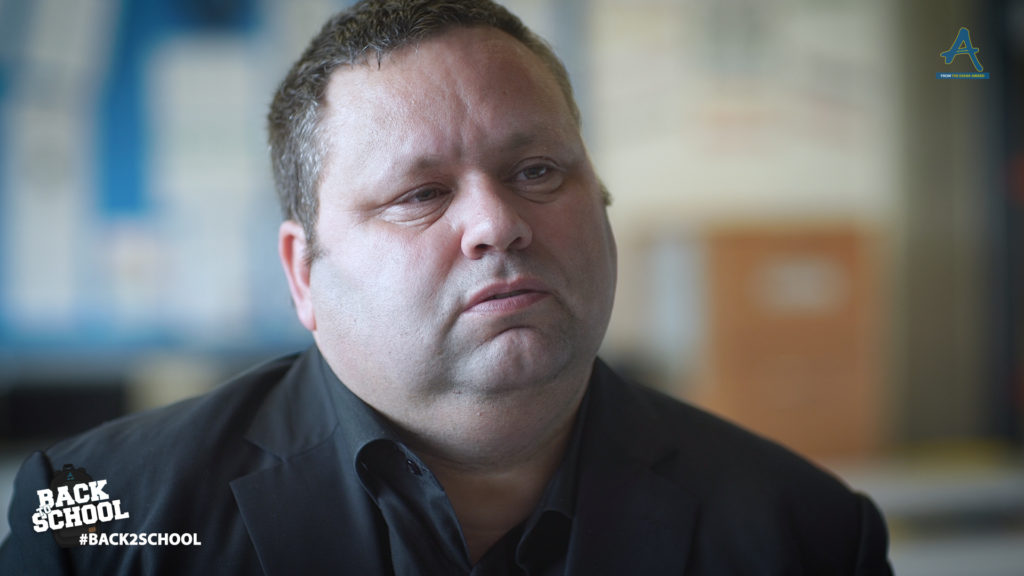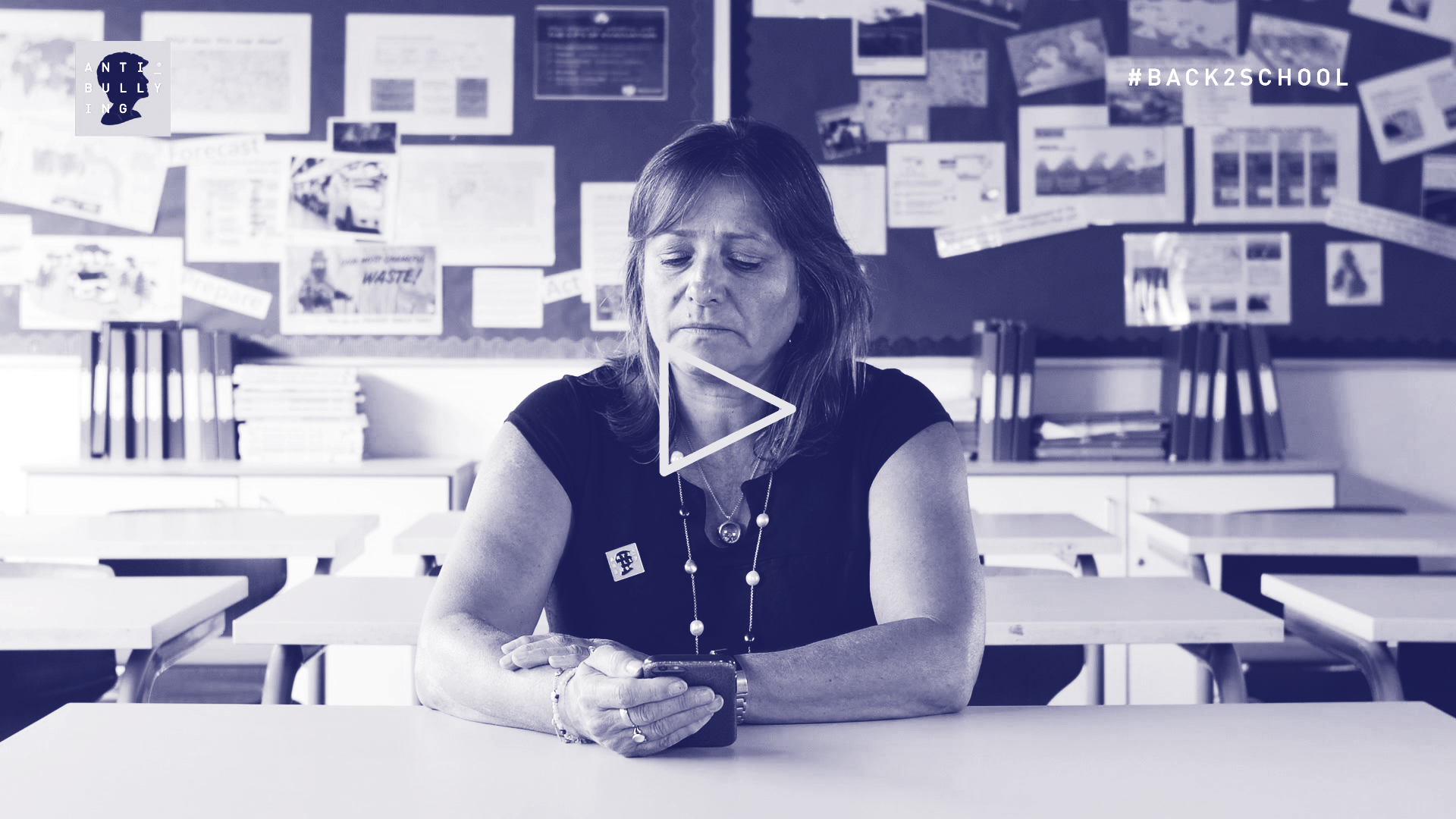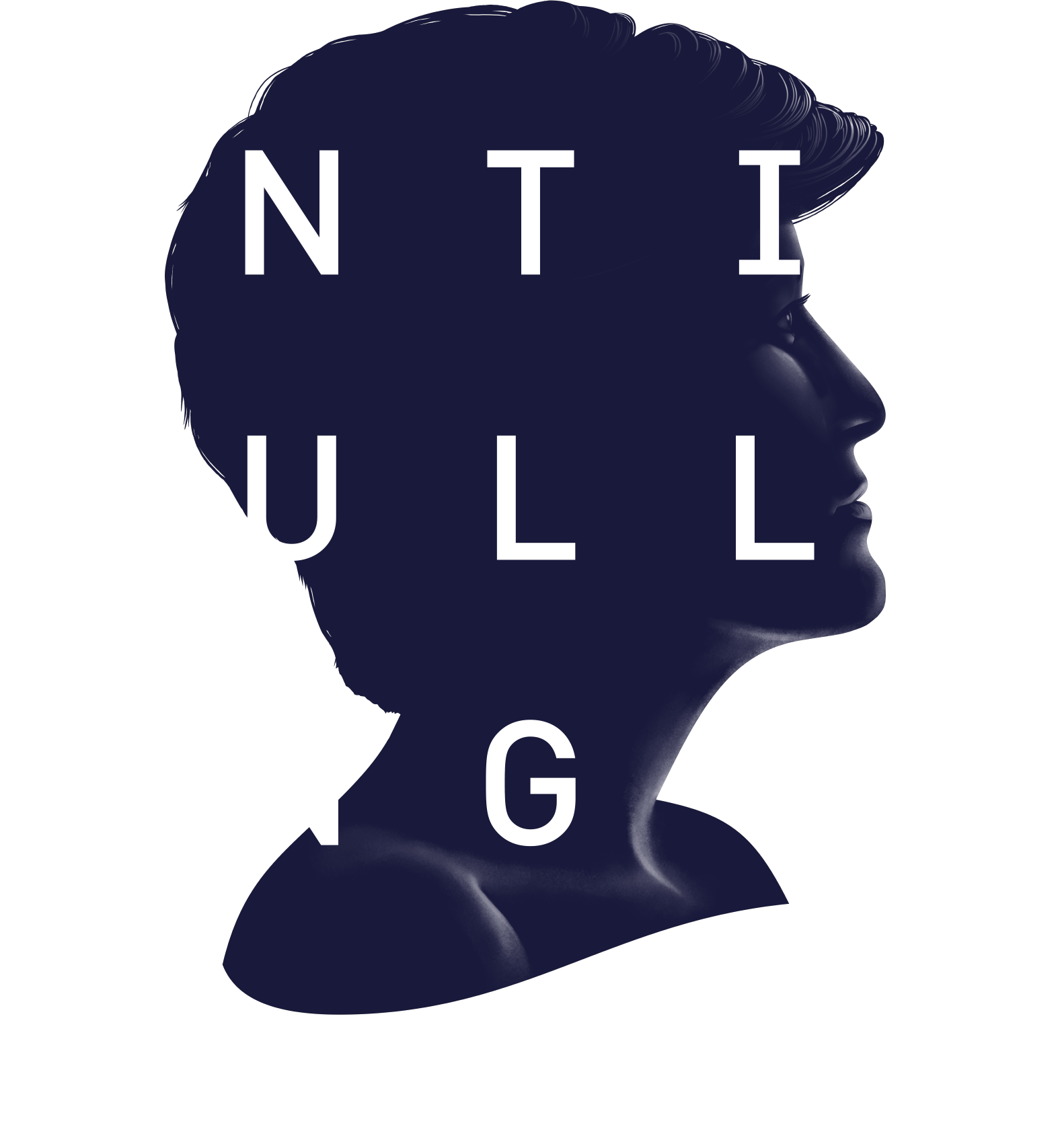
In the UK 10 million children are going back to school in September. Over half of them will be affected by bullying**In a survey to 9,181 young people from across the UK, The Diana Award Anti-Bullying Campaign found that 58% had been bullied.
BACK TO SCHOOL BULLYING STORIES_
Bullying can affect a young person’s concentration, education, relationships and self-confidence. The impact of bullying can last into adulthood, as our celebrity supporters highlight below.
WHY WE DO THIS_
Felix’s Story by Lucy Alexander
On 27th April 2016, Lucy Alexander’s son Felix took his own life aged just 17 after a decade of incessant school bullying.
Lucy wants to see Anti-Bullying Ambassadors in every school in the country. Young people spend 11,000 hours at school, you have the power to make sure that they’re in a safe and positive environment when they go #Back2School this September.
Anti-Bullying Ambassador training is free and empowers students and staff to change the attitudes, behaviours, and cultures of bullying by building skills and confidence to address different situations both on and offline. This is all delivered through The Diana Award’s renowned peer-led approach.
GET INVOLVED IN THE CAMPAIGN
1. Share your old school photo and your advice for young people returning to school this September on social media using #Back2School
e.g. “Don’t be a bystander. If you see someone being bullied, reach out and support them! Join me in going #Back2School with @AntiBullyingPro and share your advice”
2. Share our #Back2School advice centre on your social media channels by clicking the links below
3. It costs just £30 to train an Anti-Bullying Ambassador to stand up to bullying, help us make the 11,000 hours young people spend in school safe and bully free. Make your donation today. .*Outside the UK? Just click the donate more button below.
4. Find out how you can get Anti-Bullying Ambassadors trained in your school as we go Back2School this September here.
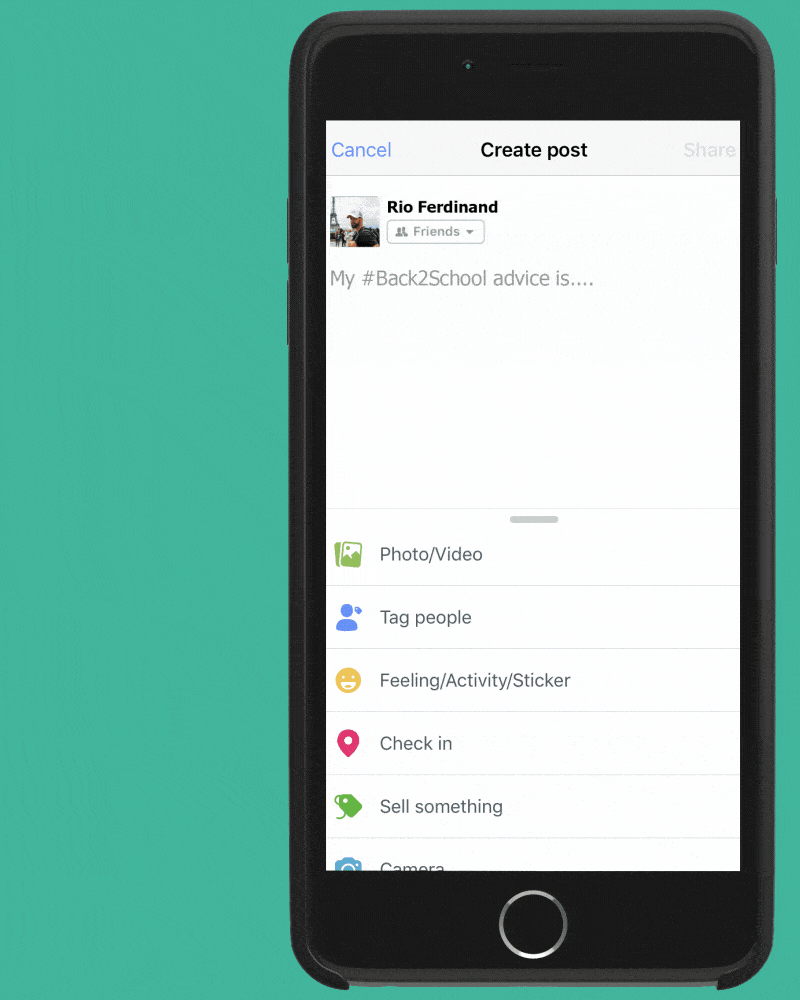
BACK TO SCHOOL ADVICE CENTRE_
Some top advice from the Anti-Bullying Ambassadors
FOR
YOUNG
PEOPLE
1. I’m starting a new school and am a bit anxious, what can I do to prepare?
Before your first day make sure you have everything you need for the start of school and make sure you are clear what you will be doing on your first day and where you need to go. Try on your uniform to make sure it fits well and you feel comfortable in it. If you are wearing a tie for the first time, practice how to tie it, it may take a few attempts!
Just remember that it is the first day back for everyone so you are not going to be the only one feeling a bit nervous, even the teachers might be. You are going to have a great year, so think positively, be yourself and get excited about the opportunities ahead!
2. How do I make friends at school?
You are not the only one who worries about making friends. Some people find it easy to make friends and some people don’t, so don’t feel alone. You may already have a group of friends but feel you have drifted from them, or want to hang out with new people. It’s very natural to change friendship groups quite a few times during your school life; as you change so will your friends. Here are our top tips for how to make friends at school:
1) Be approachable. Have open body language, smile and don’t be afraid to say hi to new people. It may seem a bit awkward at first but as soon as you get chatting you will be fine.
2) Be yourself. At school sometimes people will try to be someone else to fit in, this won’t necessarily make you happy and before long people will see it’s not the real you. You want to find people with similar interests and hobbies so be proud of what makes you special. If people don’t like it, ask yourself if they are really your friends.
3) Be kind. It may sound obvious but being kind to others will earn you respect from your peers and people will see you as a good friend.
4) Be confident. Yes this is easier said than done if you are not a confident person. Take a deep breath and remind yourself of all the reasons that you make a good friend. Be the first one to make the move and say hi to new people. You may find it helpful to think of some questions before going up to the person.
5) Be interested. Ask people questions about themselves, they will ask questions about you and before you know it you will have found lots in common and will have a new friend.
6) Be inclusive. Invite other people to join in with you, don’t be exclusive and leave people out, this might loose you respect.
7) Make the first move. Invite your new friend to do something with you out of school, this will help your friendship to grow.
8) Join a club. Joining a new club or starting a new activity is a great way to find people with the same interests as you. Join clubs inside school, as well as out.
Online friends are also an important part of lots of people’s lives, it’s a great way to stay in touch and share what we have been up to. It is important to have a good balance of both online and offline friends. Just remember to only accept friend requests from people you know and trust. If you have any problems with online friendships make sure to block and report the person and talk to someone if it’s bothering you.
3. I was bullied last term and really worried the same thing is going to happen this term. What can I do?
It is understandable that you are worried about going back, but hopefully this will be a much better term for you. There are some things you can do over the holidays to help. Why not join a club or take up a new hobby to not only make some friends out of school, but also help boost your confidence. You could also message someone you get on well with at school and ask them if they want to do something over the holidays. In the weeks leading up to school, make an action plan about what you are going to do if the bullying does happen again, this will help you feel more confident about going back. The most important thing is to enjoy your holiday and try not to think about what happened last term. Your peers may have grown up a lot over the holidays. Think positively, you are going to have a good term.
4. I’m starting Secondary school this year, what can I expect?
Secondary School is a bit different than Primary School, the people are bigger, there are more of them, you will have new subjects and a maybe a longer school day. But think about it this way, there are also way more people to make friends with, you get to spend more time with them, the school food is better (sometimes), you have more responsibility and there are so many opportunities and activities to get stuck into! Feeling worried about starting Secondary School is completely normal, have a chat to your parents/carers about what’s worrying you. At most schools you will also have a form teacher or older student who will look after you, especially in the first few weeks of school.
Reading the advice from question number 1 will also help you prepare. If you are worried about making friends our advice from question 2 might help you. It may take you a few weeks to settle in but be yourself, try your best and you will love it in no time!
5. I was bullied over the holiday by some people from my school. How should I act towards them when I go back?
Hold your head high and be confident, try to avoid them if possible. If the bullying starts again tell your teacher so they can stop it as soon as possible. You may also want to tell your teacher about what happened over the holidays so they are aware of the situation. Stay positive, the likelihood is that it won’t carry on.
6. I fell out with one of my friends over the holidays and I’m not sure what to do when I go back.
This happens to lots of friends over the holidays. If you are really worrying about it, depending on the situation, why not pick up the phone and resolve the problem before you go back to school. The chances are he/she is worrying about it too and one of you needs to make the first move. Even if you feel you may not want to be friends with them anymore it is sometimes best just to clear the air.
7. I’m a bit nervous about having different teachers to last year. How can I get in their good books?!
View having a new set of teachers as a good thing, it’s a chance for you to start a fresh and build new relationships with them. You’ve heard it all before, but make a good impression on your teachers by getting on with tasks in lessons and completing your homework in time. As with any friend or family member, show them respect and you should find that they do the same to you.
8. I think my work load is going to increase this year because of exams. How can I make sure I stay on top of it all?
The first thing to do is not to panic, you and your friends will all be in the same boat. Your teachers also know that this may be a tougher year for you and will give you extra help and support. It’s in their best interest too to make sure you have a happy year and achieve good grades. If you do struggle with a subject, or don’t understand something speak out! The worst thing you can do is to keep quiet and struggle on your own. There are lots of apps and tools to help you manage your work load too, your teacher may have some good examples, or you could do an internet search. Remember school is not just about work, make sure you balance your work with activities and hanging out with friends. Keep calm, you will do great!
9. I left school on a really bad note last term and am a bit worried about going back.
The great thing about the school holidays is it gives staff and students a time to relax and unwind from last term. After the holidays the chance is that everyone will have forgotten about what happened last term. Even if they haven’t forgotten, most people see going back to school as fresh start, not just for teachers but also for students. If something embarrassing happened and it’s mentioned again laugh it off and act like it doesn’t bother you, people will soon get bored of mentioning it.
If you got in trouble last term, help yourself have a good start back by making a good impression on other students and teachers. There is always time for a fresh start, people may find the new you different to start with, but they will quickly get used to it.
10. What should I do if I see other people being bullied at school?
If you don’t feel confident to step in yourself you can indirectly help the person being bullied by doing one or all of the actions below:
- Offer friendship. Let the person being bullied know that you understand what they are going through. This could just be by asking if they are ok and letting them know you are there to talk.
- Always report any offline or online bullying you see to a staff member.
- Befriend the person being bullied.
- Don’t join in the bullying. Even if you are standing by, watching or laughing you are still encouraging the bullying and giving the person doing the bullying an audience.
- Think about how you would feel if you were the person being bullied and how you would like to be treated.
- Encourage your friends and those watching the bullying to leave. If the person doing the bullying doesn’t have an audience they are less likely to bully.
- Talk to your friends and teachers about how you can become Anti-Bullying Ambassadors
FOR
PARENTS
1. How do I help my child through bullying?
Make sure that your child is aware of what is bullying and the actions that both they and you can take if they are experiencing it. You can find out more about that here.
2. My child’s school is not dealing with the bullying, what should I do?
Every school has a duty of care to ensure your child is safe and happy. Schools are required by law to have an anti-bullying policy in place, this will have a step by step guide on how the school should deal with the incident. Remember to work with the staff, and if you are not happy with the results you can escalate it to the governors or local education authority.
3. How can I prepare my child for the challenges ahead at a new school?
4. What are some of the signs and symptoms that my child is being bullied online?
- Becoming upset, withdrawn, or has a change in behaviour – especially after looking at their phone, computer or device
- Being afraid to go to school or skipping school
- They suddenly stop using their phone or computer
FOR
STAFF
1. What can I do to help promote friendship?
2. How do I send a clear message that bullying isn’t tolerated?
Discuss the school’s Anti-Bullying Policy, go through reporting procedure for bullying and talk about who they could turn to for support/advice. Ask your class to come up with a kindness pledge which outlines who they should treat each other when they are in your class. You can visit our resources page for more information on how to write a student-friendly Anti-Bullying Policy.
3. How do I know if a students is being bullied? Here are some of your signs that your student may be being bullied:
- Mood swings, often looks upset
- Body language – head down, won’t look at people
- Not many friends
- Often made fun of or pushed around and doesn’t defend themselves
- Sits on own at lunch and break times or they disappear at lunch or break times
- Has something that makes them stand out from other students
- Timid, shy, withdrawn, upset
- Low confidence, self-esteem, can sometimes seem very sensitive
- Suddenly starts bullying other students
- Avoids, or is nervous in group situations
- A sudden change in behaviour or attitude to work
4. Is the word “banter” hiding bullying?
Keep an eye on the situation, some students may use “banter” to hide bullying. If you notice one party not feeling comfortable or the language being used it not appropriate, step in. You can take the pupil out discretely or ask to see them at the end of the lesson, remember to ask the person being bullied what they would like the next steps to be.
Why not run a session during your tutor period that encourages a dialogue about what it is deemed to be “banter” and what is bullying, and the impact that it can have on others.
5. Is there training available to help with bullying?
Yes! We run a well-known Anti-Bullying Ambassadors training scheme which is available across the UK and Ireland. You can find out more about how to get involved here.
6. How can I make sure bullying is reported in my school?
It is every school’s responsibility to offer support to its students if their well-being is being affected by bullying in or outside of school. Successful strategies from Diana Award winning schools have included: internal reporting tools on intranets, using mobile phones apps such as Toot Toot, reporting and supporting post boxes, allocated safe spaces in school premises for students to access and guidance of how to report on social media platforms.

